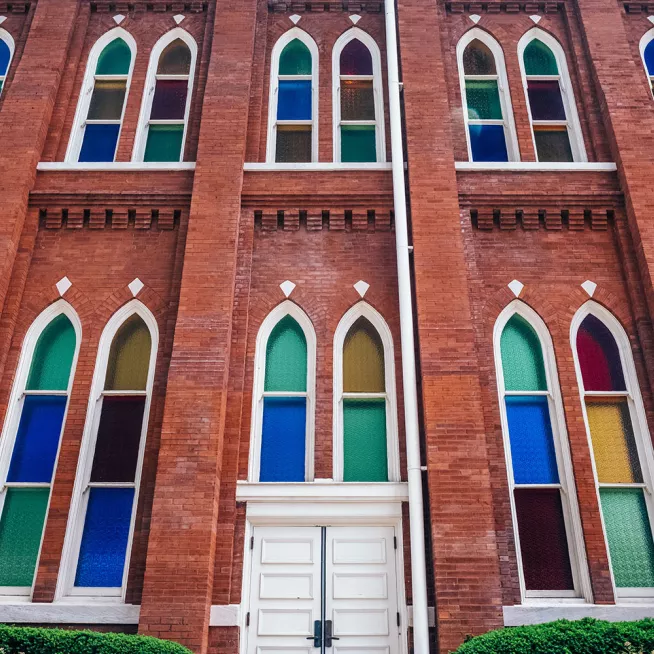
Statistics & Facts
Breadcrumb
Discover a comprehensive collection of statistics, facts, figures, and valuable insights about the city of Nashville. Our resource offers detailed data on Nashville's economy, tourism, demographics, growth trends, and more, helping you gain a deeper understanding of what makes Music City unique. Whether you’re a journalist, researcher, or simply curious about the city's development, this is your go-to hub for all things Nashville.
Statistics
- Elevation: 550 feet (168 meters) at the lowest point; 1,100 feet (336 meters) at the highest point of the rim around the Nashville basin
- Time: Central Standard (CST), early November to mid-March; Central Daylight (CDT), mid-March to November.
- Metropolitan Statistical Area (MSA) is comprised of 14 counties: Cannon, Cheatham, Davidson, Dickson, Hickman, Macon, Maury, Robertson, Rutherford, Smith, Sumner, Trousdale, Williamson, and Wilson.
- Nashville/Davidson County has a metropolitan government based on a 1963 plan that has become a national model. The county is largely urbanized with extensive residential areas, and population growth continues to increase due to transportation advantages, labor supply, and development opportunities.
- 2023 Nashville MSA Population: 2.1 million
- Downtown Nashville Residential Population Growth (based on new units added downtown):
2019 Residents: 13,000
2020 Residents: 14,000
2021 Residents: 15,000
2022 Residents: 16,302
2023 Residents: 17,630
2024 Residents: 20,000
- Downtown Nashville Residential Population Growth (based on new units added downtown):
- 2023 Nashville MSA Median Household Income: $84,685
- Nashville MSA Unemployment Rate (as of July 2025): 3.7%
Business Climate
Nashville's business climate is thriving, with a strong economy, a diverse range of industries, and a growing tech sector, making it an attractive destination for entrepreneurs and investors alike.
Industry
Major industries in Nashville include Health Care Management, Automobile Production, Finance, Higher Education, Insurance, Music Production, Printing & Publishing, Technology Manufacturing, and Tourism.
Industry breakdown:
Employment Sector | Jobs |
Professional and Business Services | 197.1K |
Health Care and Social Assistance | 148.6K |
Leisure and Hospitality | 141.5K |
Government | 123.1K |
Retail Trade | 107.9K |
Manufacturing | 88.4K |
Wholesale Trade | 51.2K |
Other Services | 52.1K |
Information | 31.1K |
Source: Nashville MSA BLS - Current Employment Statistics (CES) July 2025
Headquartered Companies
Corporate Headquarters in Nashville Region:
- Amazon
- Asurion
- Bridgestone Americas Inc.
- Community Health Systems
- Cracker Barrel Old Country Store Inc.
- Dollar General Corp.
- HCA Healthcare Inc.
- ICEE
- iHeartMedia
- Mitsubishi Motors
- Nissan North America
- Saint Thomas Health
- Tractor Supply
- Vanderbilt University
Source: Nashville Area Chamber of Commerce
Transportation
Nashville offers a variety of transportation options, including a well-connected network of highways, a growing public transit system, and expanding bike lanes, all supporting the city's increasing population and tourism.
Air
The Nashville International Airport serves 18 airlines with 523 average daily arrivals and departures to 114 nonstop destinations. The following is a list of the airlines with gates at the Nashville Airport:
- Aer Lingus
- Air Canada
- Alaska Airlines
- Allegiant
- American Airlines
- Avelo
- British Airways
- Contour
- Delta Air Lines
- Frontier Airlines
- Icelandair
- JetBlue Airways
- Southwest Airlines
- Spirit Airlines
- Sun Country
- United Airlines
- Vacation Express
- Viva Aerobus
- WestJet
Road
Nashville is one of only six U.S. cities at the convergence of three major interstate highways – I-40, I-65, and I-24. The 440 Parkway downtown loop and Briley Parkway link the urbanized areas; Route 840 connects four counties in an outer loop. Approximately, 12 million people live within a 2.5-hour drive of the city.
Rail
WeGo Star opened its East Corridor route in late 2005. With service Monday through Friday, three daily morning and afternoon trains connect Donelson, Hermitage, Mt. Juliet, and Lebanon to downtown Nashville. The East Corridor route covers 32 miles and service between stops peaks at 60 miles per hour.
Hospitality Industry
- 141,500 leisure and hospitality jobs in the Nashville MSA.
- Nashville has 42,156 hotel rooms in Davidson County and 60,933 rooms in the Nashville MSA.
- Gaylord Opryland® Resort & Convention Center is the largest non-gaming hotel property in the United States, with 2,888 rooms and more than 700,000 square feet of meeting space, including 263,772 of contiguous exhibit space.
- The Music City Center, Nashville’s downtown convention facility, opened in May 2013. The 2.1 million-square-foot Music City Center features more than 375,000 square feet of exhibit space, 128,000 square feet of meeting space, two ballrooms, a business center, and a 2,500-seat theater.









